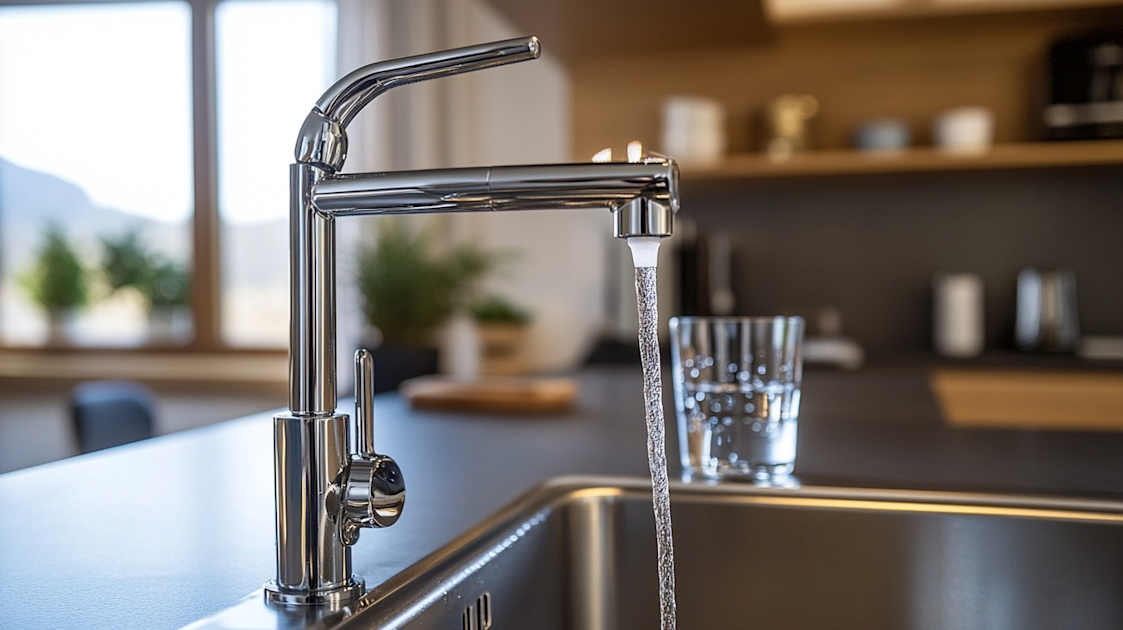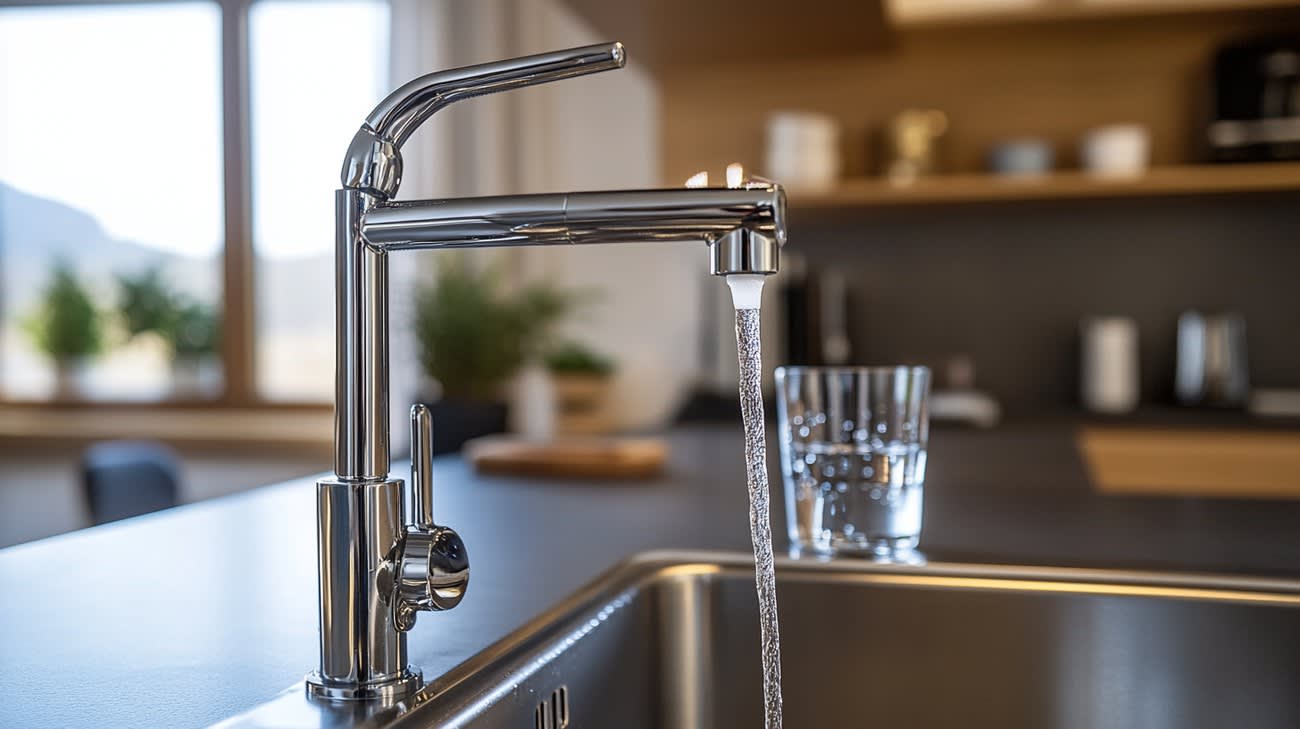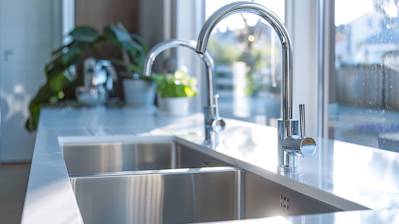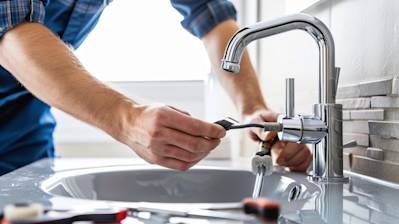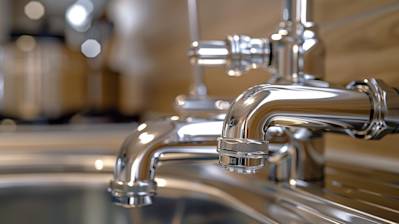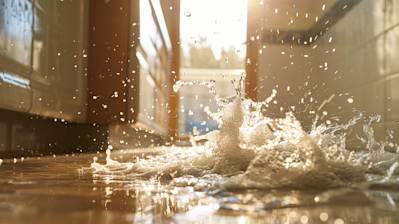Water is life; it's essential to our survival. However, not all water sources provide clean, safe water for consumption. This is one reason why water filters for sinks have become integral in modern homes. These devices purify water eliminating harmful substances, thus assuring you safe drinking water directly from your tap.
This post provides all the information you need about water filters for sinks. After reading this, you will gain an understanding of their importance, types and elements to consider when buying one.
What are Sink Water Filters?
Sink water filters are specifically designed systems that purify your tap water. They reduce the presence of contaminants, such as chlorine, lead, mercury and other dangerous substances, providing clean, odorless and tasty water for consumption. With this device attached to your sink, you say goodbye to the need of buying bottled water or waiting for your pitcher filter to do its job.
Importance of Sink Water Filters
These filtration systems come with many benefits. Here are some:
- Healthier Consumption: They remove a significant amount of contaminants from your tap water, reducing the risk of water-borne illnesses.
- Cost-Effective: You save costs on buying bottles of water or healthcare bills due to water-related diseases.
- Convenience: Having a water filtration system at your sink means you have instant access to clean, fresh water anytime you need it.
Types of Sink Water Filters
Three main types of sink water filters are commonly used today: under-sink water filters, faucet filters, and countertop water filters.
Under-Sink Water Filters
These are installed underneath your sink and directly connected to your water line. The filter purifies the water before it reaches your faucet, ensuring you get filtered water every time you turn on the tap.
Faucet Filters
Faucet filters are attached directly to the sink faucet. They are relatively easy to install and less expensive compared to under-sink filters.
Countertop Water Filters
These are typically larger and placed on the countertop near the sink. They are directly connected to the faucet and filter water on demand.
Each of these types has its unique features and advantages, depending on your needs and budget.
Understanding Common Filtration Technologies
Different sink water filters employ a variety of filtration technologies:
- Activated Carbon Filters: They are known for removing organic compounds, chlorine, and improve the taste and odor of water.
- Reverse Osmosis Systems: These filters employ a semi-permeable membrane to remove contaminants. They can clear up to 99% of dissolved salts, particles, and other impurities.
- Ceramic Filters: They have tiny pores that filter out contaminants. They are often used together with activated carbon filters.
- Alkaline/Water Ionizers: These use electrolysis to separate acidic and alkaline water.
Elements to Consider When Buying a Sink Water Filter
Choosing a suitable water filter for your sink is crucial. Below are some factors you might want to consider:
- Types of Contaminants: Consider the water source and the potential contaminants it carries. From there, pick a filter that can efficiently remove these specific contaminants.
- Filter Lifespan: Filters require replacement with time. Choose a filter with an extended lifespan to reduce maintenance costs.
- Filtration Rate: It’s important to choose a filter that can purify water as per your consumption rate.
- Installation and Maintenance: Some filters require the skills of a plumber for installation while others are easy DIY. Also, check if the maintenance is easy or not.
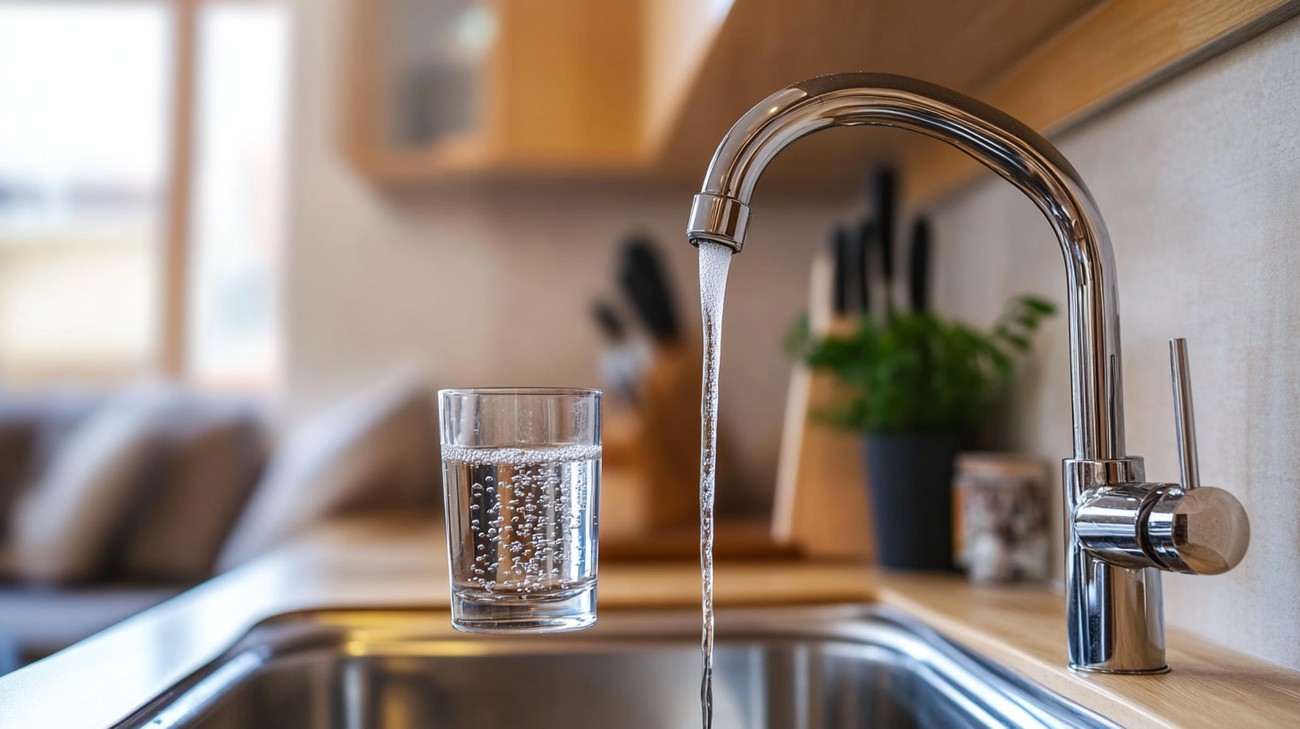
Frequently Asked Questions about Water Filter For Sink
How Do Sink Water Filters Function?
Sink water filters work by pushing tap water through several layers of filters. Each filter layer is designed to sieve out specific contaminants. Some filters may use activated carbon which traps pollutants, while others use ion exchange technology to remove harmful ions and replace them with healthier ones.
What Are the Different Types of Sink Water Filters?
Sink water filters generally fall into three categories. Under-sink filters are installed underneath your sink and filter all water coming from that faucet. Faucet-mounted filters directly attach to your sink's faucet, and countertop filters are separate units that sit on your counter and filter water when you manually fill it up.
Are Sink Water Filters Difficult to Install?
The complexity of putting in a sink water filter heavily depends on the specific model. Some, like faucet-mounted filters, can be installed without any special tools or skills. However, under-sink filters may require additional plumbing expertise. Most models come with a comprehensive guide or instructions that you can follow.
How Often Do I Need to Change the Filter In My Sink Water Filter?
On average, a sink water filter cartridge should be changed every six months. However, this depends on the usage and the quality of your water. If your water has a high level of contaminants, you may need to change the filter more frequently.
What's the Difference Between a Sink Water Filter and a Whole House Water Filter?
A sink water filter only purifies the water that comes from a specific sink where it's installed. On the other hand, a whole house water filter is installed at the point where water enters your home, hence purifying all water used throughout your household.
Do Sink Water Filters Remove Beneficial Minerals?
While sink water filters are designed to weed out harmful contaminants, they may also filter out some beneficial minerals like calcium and magnesium. However, many modern filters now feature a remineralization stage, allowing them to filter harmful substances while maintaining beneficial minerals.
Is Filtered Sink Water as Good as Bottled Water?
Filtered sink water can often be as good as, if not better than, bottled water. While bottled water is also filtered, it often lacks the minerals your body needs. Moreover, using a sink water filter is more environmentally friendly and cost-effective, as you won't have to buy and dispose of plastic bottles.
What Should I Look for When Buying a Sink Water Filter?
When purchasing a sink water filter, consider its size, installation procedure, type of contaminants it filters out, filter lifespan, its impact on water flow rate, and of course, your budget. The best water filter for you would be one that accurately suits your lifestyle, water quality, and personal preferences.

Pros of Water Filter for Sink
Improves Water Quality
Removes Impurities
The main advantage of a sink water filter is that it can significantly enhance the quality of your tap water. It's highly efficient in filtering out various impurities, including chlorine, bacteria, lead, and other potentially harmful substances. As a result, it ensures that the water you drink is safer and healthier.
Enhances Taste and Odor
Unfiltered tap water often has a noticeable taste or odor due to minerals, chlorine, and other substances. With a sink water filter, these undesirables are eliminated, which results in water that tastes fresher and is odor-free.
Convenient and Easy to Use
Quick Installation
Most sink water filters are compact and easy to install. You just have to attach it to the faucet, without the need for any major plumbing changes. Once installed, it's ready for use immediately.
Simple Maintenance
Maintaining a sink water filter is generally straightforward and low-effort. Many models come with removable cartridges that can be easily replaced when necessary. A few models even have a built-in indicator to inform users when the cartridge needs replacement.
Economically Efficient
Reduces Bottled Water Consumption
With a sink water filter, you don't need to continuously buy bottled water, which can be pricey over time. It's an environmentally friendly and cost-effective solution since you're utilizing the tap water in your home that's already paid for.
Long-Lasting
Many water filters boast a long lifespan, only requiring cartridge changes several times a year. This makes the overall expenses relatively low as you only need to replace the cartridge and not the entire system.
Cons of Water Filter for Sink
Might Not Remove All Contaminants
Limited Filtration
While sink water filters are effective at removing many harmful substances, they might not eliminate everything. Certain substances and microorganisms may remain in filtered water, including viruses, minerals, or synthetic compounds.
Inconsistent Quality Across Models
Not all sink water filters are created equal. The level of purification can vary dramatically from model to model. Some basic filters might only remove a small percentage of contaminants, while others might offer more comprehensive filtration.
Requires Regular Maintenance
Cartridge Replacement
Though maintenance is usually straightforward, it's essential and must be performed regularly. If neglected, a filter's effectiveness can decrease over time as the cartridge fills up with contaminants. Also, forgetting to replace the cartridge can lead to a buildup of bacteria in the filter.
Possibility of Leaks
Like any water-related equipment, sink water filters may eventually develop leaks if not maintained properly. If unnoticed, these leaks can cause water damage to your countertops or cabinets.
Changes in Water Pressure
The use of a water filter could potentially lower your sink's water pressure. This might not be a significant issue for some people, but for others, it might make washing dishes or preparing food less efficient.

Myths and Misconceptions About Water Filters for Sink
A plethora of myths and misconceptions surrounding water filters for a sink can lead consumers to make undesirable choices. Digging into some of these common beliefs can shed light on the actual facts and aid shoppers in making well-informed decisions.
'All Water Filters are the Same'
Myth
All water filters for sinks work in the same manner and produce similar results, irrespective of type, model, or brand.
Reality
This myth is considerably inaccurate as different types of water filters work in diverse ways and achieve varied results. Filters can differ in terms of the number and size of the contaminants that they can remove. For instance, while some may be effective in getting rid of large particles and sediment, others may be designed to remove microorganisms, chemicals, or heavy metals. The brand and model of filter can also impact its efficiency and longevity.
'Bottled Water is Safer than Filtered Water'
Myth
Drinking bottled water is safer and healthier than consuming tap water that has been filtered at home.
Myth Busting
Though many believe that bottled water is more hygienic than filtered water, this isn't always the case. Bottled water is often nothing more than filtered tap water. While some brands use spring water, this water can still be contaminated with substances such as bacteria, algae, and fungi, and therefore must be treated. Not to mention, consuming bottled water involves an enormous level of waste and environmental impact.
'Filtering Water Removes Beneficial Minerals'
Myth
Using a water filter for a sink leads to the removal of essential minerals from the water, thereby reducing its nutritional value.
Reality
While some water filters can remove minerals, not all do, and the amount they remove is typically insignificant compared to the amount you should receive through a balanced diet. Many essential minerals for our health, like calcium, potassium and magnesium are mainly obtained from foods rather than water.
'Filtered Water Tastes Flat or Bland'
Myth
Filtered water loses its taste and becomes bland or flat once the minerals and other particles are removed.
Factual Clarification
The perception of taste in water is subjective and can also be influenced by temperature and pH level. Some people may find that filtered water tastes 'cleaner' because it doesn't contain the chlorine used to treat tap water. Moreover, filtered water's taste would vary depending on the system of filtration and the types of contaminants being filtered out.
'Once Installed, Water Filters Don’t Require Maintenance'
Myth
Once you have installed a water filter for your sink, you don’t need to worry about any maintenance or care.
Reality
Like any other appliance, water filters need to be maintained to function effectively. This typically involves regularly replacing filter cartridges, as the filter medium can become clogged over time with the materials it is designed to remove. Ignoring routine maintenance can lower the efficiency of your filter and may even render it useless.
'Water Filters Always Improve the Taste of Water'
Myth
Using a water filter will always make your water taste better.
Truth
Whether or not a water filter improves the taste of your water largely relies on what is in your tap water to begin with and whether those substances affect the taste. A water filter will not necessarily 'improve' the taste of water; it may just make it taste different, depending on the varying compounds in your local water supply and what exactly the filter is removing.
'Water Filter Systems are Unaffordable'
Myth
Installing a water filter system under the sink is an expensive commitment, and hence, not affordable for the average household.
Fact
There is a wide range of water filter systems available in the market, designed to cater to different budgets. While some high-end models with advanced features may attract a higher price tag, there are also several affordable options that can provide clean, filtered water. When considering cost, it's also important to take into account the long-term savings afforded by not needing to purchase bottled water.
From the above, it is clear that informed decisions on water filters for sinks are crucial, and prospective buyers should do thorough research to separate fact from misconception. As with all purchases, it is always best to get informed by reliable sources before making any decision.
Summary
After careful observation, we've realized that a water filter for sink is an excellent way to ensure clean and healthy water supply. It not only helps to decrease the risk of water-borne diseases but also promises to deliver a refreshing and enhanced taste by removing impurities. So, if you're thinking about a cost-effective solution for maintaining the commitment to your health, investing in a water filter for sink can be an excellent idea!
The benefits of having a water filter at the sink are significant and hard to ignore. You're guaranteed better taste and smell, reduced contaminants and, in many cases, a convenient, on-hand supply of water for cooking as well. Doing a bit of research on what impurities your local water contains can guide you in selecting the right filter system. Safe, clean water right from your tap - what’s not to like about a water filter for sink?
At the end of the day, the essence of purchasing a water filter for sink revolves around a single purpose – clean and safe drinking water. Although it’s a straightforward device, the difference it makes in living a healthier lifestyle is remarkable. Always remember, investing in a water filter is a practical approach and not a luxury expenditure. Let this tiny addition ensure you get your gulp of goodness every time you quench your thirst!
About KYPD Plumbing
KYPD Plumbing is your trusted, local plumbing company based in Lexington, KY. Passionate about providing reliable plumbing services, KYPD guarantees professional, prompt, and personable service every time. Over the years, we've carved a niche for ourselves by offering everything from fixing leaks to major plumbing installations. Our team of experienced and friendly technicians are always at hand ensuring that your plumbing system is working efficiently. With KYPD Plumbing, you're not just our clients, but also our neighbors and friends, and we're always ready to go the extra mile for you.
Tags: kitchen, faucet, purification,

